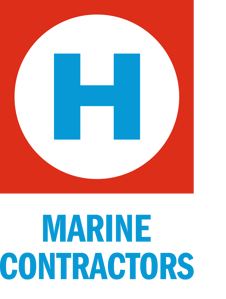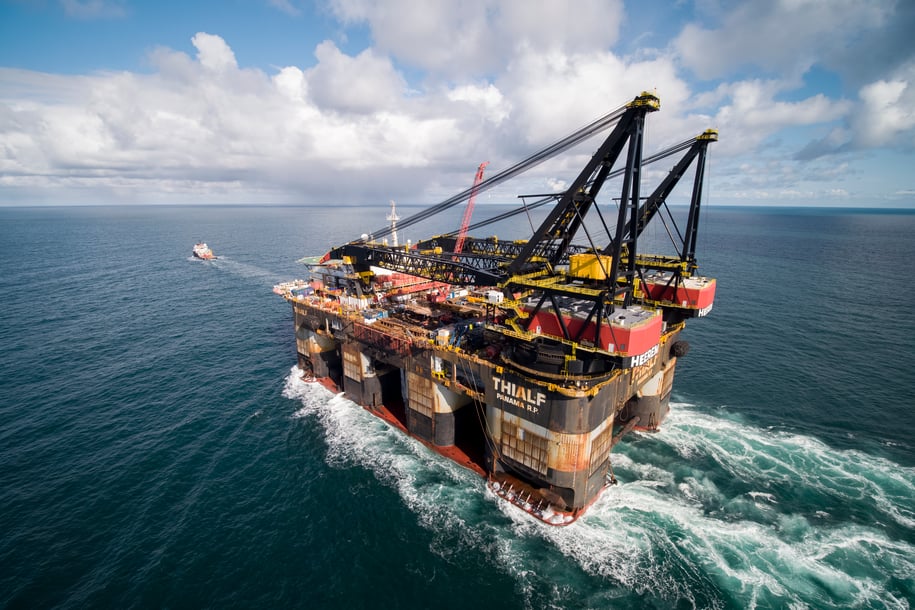Your role in the story
Are you a final-year student with a passion for offshore engineering, data analysis, and sustainability? Join Heerema Marine Contractors and contribute to a project that directly supports our decarbonization goals. As a graduation student, you’ll work on a cutting-edge weather routing model for our semi-submersible crane vessels, using real-world data to improve fuel efficiency. You’ll be guided by experienced engineers and gain exposure to the operational and technical challenges of offshore transit planning.
What’s the challenge
Weather routing is a critical factor in maritime operations, especially for semi-submersible crane vessels like Sleipnir, Thialf and Balder. These vessels face unique challenges due to their size and design. This project aims to develop a model that uses historical vessel and meteorological data to optimize routing decisions, reducing fuel consumption and environmental impact. By leveraging historical vessel, meteorological data and advanced analytical techniques, improved models can be created to enhance route planning. The outcome will support our sustainability strategy and improve operational efficiency.
Your mission & goals
Goal. This Master Thesis or internship project aims to develop a weather routing model which optimizes the transit of semi-submersible crane vessels using the ships historical data and meteorological forecasts.
Literature review. Reviewing the literature for existing models will provide a foundation for developing a new model tailored to semi-submersible crane vessels. Understanding vessel dynamics, including wave-induced motions, hull resistance, and propulsion efficiency, is essential for effective weather routing. The literature study should also focus on the data analysis techniques of historical data, which is vital for developing predictive models. The role of AI and modern tools is highly encouraged.
Data Collection. Historical data on ship movements, weather conditions, and fuel consumption will be collected from various sources, including vessel logs, meteorological databases, and onboard sensors. Heerema counts with several vessel data collection systems at the disposal of the student.
Model Evaluation. Our semi-submersible vessels have carried out several transits the past two years, the longest being the Sleipnir traveling from the North Sea to Australia and back. The data collected during these transits can be used to evaluate the performance of the model, checking forecasted weather data at the moment, and the chosen route of the vessel; choosing correct techno-economical metrics like fuel consumption and voyage duration.
What you’ll gain
Are you a final-year student with a passion for offshore engineering, data analysis, and sustainability? Join Heerema Marine Contractors and contribute to a project that directly supports our decarbonization goals. As a graduation student, you’ll work on a cutting-edge weather routing model for our semi-submersible crane vessels, using real-world data to improve fuel efficiency. You’ll be guided by experienced engineers and gain exposure to the operational and technical challenges of offshore transit planning.
What’s the challenge
Weather routing is a critical factor in maritime operations, especially for semi-submersible crane vessels like Sleipnir, Thialf and Balder. These vessels face unique challenges due to their size and design. This project aims to develop a model that uses historical vessel and meteorological data to optimize routing decisions, reducing fuel consumption and environmental impact. By leveraging historical vessel, meteorological data and advanced analytical techniques, improved models can be created to enhance route planning. The outcome will support our sustainability strategy and improve operational efficiency.
Your mission & goals
Goal. This Master Thesis or internship project aims to develop a weather routing model which optimizes the transit of semi-submersible crane vessels using the ships historical data and meteorological forecasts.
Literature review. Reviewing the literature for existing models will provide a foundation for developing a new model tailored to semi-submersible crane vessels. Understanding vessel dynamics, including wave-induced motions, hull resistance, and propulsion efficiency, is essential for effective weather routing. The literature study should also focus on the data analysis techniques of historical data, which is vital for developing predictive models. The role of AI and modern tools is highly encouraged.
Data Collection. Historical data on ship movements, weather conditions, and fuel consumption will be collected from various sources, including vessel logs, meteorological databases, and onboard sensors. Heerema counts with several vessel data collection systems at the disposal of the student.
Model Evaluation. Our semi-submersible vessels have carried out several transits the past two years, the longest being the Sleipnir traveling from the North Sea to Australia and back. The data collected during these transits can be used to evaluate the performance of the model, checking forecasted weather data at the moment, and the chosen route of the vessel; choosing correct techno-economical metrics like fuel consumption and voyage duration.
What you’ll gain
- Experience with real-world vessel data and advanced analytics
- Skills in Python, Matlab, and Databricks
- Insight into offshore engineering operations and sustainability practices
- Opportunity to visit one of our vessels and engage with the nautical crew
- Mentorship from senior engineers in marine and sustainability disciplines


/Corliz-van-Amersfoort.jpg?width=720&name=Corliz-van-Amersfoort.jpg)


/People%20for%20job.jpg?width=600&name=People%20for%20job.jpg)